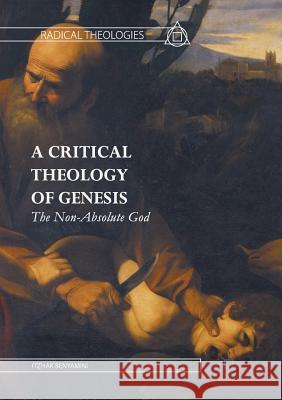A Critical Theology of Genesis: The Non-Absolute God » książka
topmenu
A Critical Theology of Genesis: The Non-Absolute God
ISBN-13: 9781349955428 / Angielski / Miękka / 2018 / 159 str.
Kategorie:
Wydawca:
Palgrave MacMillan
Seria wydawnicza:
Język:
Angielski
ISBN-13:
9781349955428
Rok wydania:
2018
Wydanie:
Softcover Repri
Ilość stron:
159
Waga:
2.38 kg
Wymiary:
21.01 x 14.81 x 0.97
Oprawa:
Miękka
Wolumenów:
01
Dodatkowe informacje:
Wydanie ilustrowane











